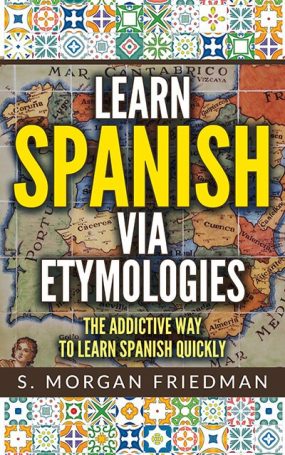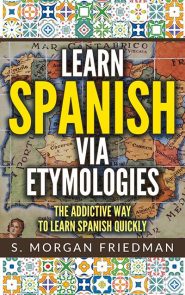Rehusar – Refuse
- Posted by Morgan
- on Apr 11, 2024
- in Initial F to H, Patterns
The Spanish rehusar — literally, “refuse” — sounds odd to English ears: it’s the same word, but the -f- became an -h-. Huh?
This is explained via the pattern of Latin words that began with an f- tending to turn into an h- in Spanish and only in Spanish. See famine/hambre, and huir/fugitive for example.
Refuse and Rehusar follow the same pattern. Both come from the Latin refundere — from which we also get the English, refund. They are all ways of giving back.
This f-to-h pattern usually happens with the first letter of the word. But here it is the first letter of the second syllable — because the re- is of course the standard prefix so it didn’t affect the sound pattern change.
- See more of this pattern: Initial F to H, Patterns
Arena – Dirt and Stadium
- Posted by Morgan
- on Apr 11, 2024
- in True Spanish Etymology Stories
The Spanish arena means “sand” or “dirt” while the English arena means, well, arena (something similar to a stadium). Nothing to do with sand!
Or so it seems…
Interestingly, both come from the same root: the Latin harena which meant “a place to combat, usually a sandy place” but came from an older, Etruscan word meaning, “a sandy place”. From the older meaning we get the Spanish sand, but from the Roman variation — apparently, the Romans often fought on sand! — we get the newer, English meaning.
- See more of this pattern: True Spanish Etymology Stories
Lleno – Plenty
Llenar — Spanish meaning “to fill” — comes from the Latin plenus, meaning “full”.
This, therefore, connects it to the English for the same, from the same root: Plenty. Not to mention, the less common English word plenary.
These words sound so different yet they’re so similar. Here’s how: Latin words that began with pl- usually turned into ll- when Latin evolved into Spanish. But as these words moved into English via French, they remained unchanged.
This explains not just llenar/plenty but explains a bunch of other words, including llama/flame.
Jeringa – Syringe
Jeringa, Spanish for Syringe, sounds like it has nothing in common with its English counter-part. But they are literally the same word.
The Latin sh- sound often evolved into the j- sound in Spanish — originally retaining the sh- sound but eventually, under Arabic’s influence, transforming to the throat-clearing sound we know and love.
This explains how both jeringa and syringe derive from the same root: the Latin siringa, itself from the Greek syringa. The sy- sound is a variation of the sh- sound and therefore the sy-r-n-g of syringe maps to the j-r-n-g of jeringa.
Quizás and Savvy
- Posted by Morgan
- on Mar 29, 2024
- in True Spanish Etymology Stories
Continuing the recent saber and sage conversation…
Quizás (Spanish for “perhaps”) comes from the Latin qui sapi — literally, “Who knows?”. The sapi in that phrase is from the Latin for “to know”, sapere, from which root we get the English… savvy. Someone who is savvy just knows a lot about the subject!
The final -s of quizás maps to the first s- of savvy. And the -p- in sapere, although vanished from quizás, maps to the -vv- in savvy.
- See more of this pattern: True Spanish Etymology Stories
Demasiado and Master
- Posted by Morgan
- on Mar 28, 2024
- in True Spanish Etymology Stories
The Spanish demasiado (“enough!”) comes from the Latin adverb magis, meaning “more!”.
From that same root magis, we also get the English… master.
It goes to show you: a master is really someone who, as Depeche Mode said, just can’t get enough. So they keep going and going and going, until they’ve become a master.
The m-s root maps clearly to both words.
- See more of this pattern: True Spanish Etymology Stories
what is the etymological way to learn spanish?
Nerds love to pattern-match, to find commonalities among everything. Our approach to learning languages revolves (the same -volve- that is in “volver”, to “return”) around connecting the Spanish words to the related English words via their common etymologies – to find the linguistic patterns, because these patterns become easy triggers to remember what words mean. Want to know more? Email us and ask:
morgan@westegg.com

